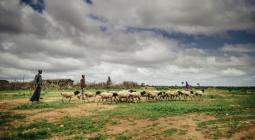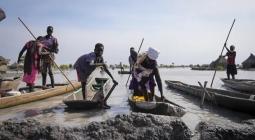Singtel sells stake in Airtel Africa

The move comes even as the African telecom sector continues to register strong growth each year
In a significant move that reduces Singapore’s footprint in Africa’s telecommunications market, telecommunications giant Singtel has sold its 1.6% stake (60 million shares) in Airtel Africa for US$110.6m, making a profit of US$25.1m in return. The firm placed its shares on the Singapore stock exchange (SGX) in March – an offer the company claimed was oversubscribed. According to Chief Financial Officer, Arthur Lang, Singtel’s divestment is “not representative” of a shift in its strategy towards Africa. Singtel retains a 21.7% effective stake in Airtel Africa through direct and indirect shareholding; 17.8% is through parent firm, Bharti, and 3.9% directly in Airtel Africa.
Singtel has been a minor shareholder in Airtel Africa since 2018 when it put US$183m in the Indian-owned telecom operator that was among the first to invest in the expansion of mobile services in Africa. For much of the last decade, Airtel has been Africa’s second largest telecommunications provider, behind South Africa’s MTN. It is present in 14 markets on the continent and counts at least 125 million standard customers on its books. Its mobile money services are also among the most used, with at least 11.8 million subscribers in Africa.
Singtel says it will continue to benefit from Bharti’s ventures in Africa, especially its planned expansion in existing markets such as Kenya, Nigeria, Tanzania, Republic of Congo, and Democratic Republic of Congo (DRC).
Singtel’s decision shows the options available to other Asian investors looking to book profits in Africa’s burgeoning telecommunications market. Long-term foreign direct investment in the telecom sector, such as the one made recently by Japan’s Sumitomo in Ethiopia, is usually well received (Sumitomo is the second largest shareholder in the newly established Safaricom Telecommunications Ethiopia PLC; the ground-breaking venture won Ethiopia’s first telecommunications license offered to foreign interests since de-regulating the lucrative sector).
In addition to long-term gains and greater familiarity with the market, it also builds political, and social capital for the investor which tend to pay off over time especially during the expansion phase. However, it does come with some downsides. A more rigid, expansive, and permanent stay often means greater exposure to endogenous risks. Singtel’s decision makes sense. It allows it to book profits from the boom while providing insulation from risks.
Sub-Saharan Africa’s telecommunications market is forecast to grow by 4.6% per year until 2025 in terms of unique subscribers, far outstripping the global rate of 3%. Until the coronavirus pandemic, Africa’s share of smartphone sales was also rising, going from 5.9% in 2017 to 6.6% in 2019; positively, this figure is forecast to rise to 7.1% in 2023. Monetarily, the Mordor Intelligence market research company claims that the market could register a compound annual growth rate of 11.2% between 2021 and 2026.
With the boom showing little sign of slowing down, opportunities for foreign direct and portfolio investments are aplenty. DRC, Nigeria, Tanzania, Kenya, and more recently Ethiopia, have emerged as the most promising, large and growing markets; although “saturated” markets such as South Africa and Egypt remain choice. As the expansion of the 4G and 5G network continues and more consumers switch to smart phones opportunities for start-ups developing apps that help with payments, money transfers, and mobility will also grow, as will those specialising in physical infrastructure. Huawei, for instance, is known to be eyeing out opportunities to cater to Ethiopia’s requirement for at least 7,000 new network towers and thousands of kilometres of fibre optic cables.
Singaporean investors may choose to follow the Singtel route of portfolio investment or Sumitomo’s route of more direct investment as they hedge (and connect) two of the world’s most lucrative telecommunication markets – East Asia and Africa.
References
‘Singtel(SGX:Z74) company announcements’, SGinvestors.io, 22 April 2022
‘Singtel raises $110m through Airtel Africa sale’, Developing Telecoms, 25 March 2022
‘Singtel monetises partial stake in Airtel Africa as part of capital recycling strategy’, Singtel, 25 March 2022
‘General Telecommunications market research reports’, Mordor Intelligence, 17 January 2022
‘Global Partnership for Ethiopia welcomes licence award to operate telecom services in Ethiopia’, Sumitomo, 25 May 2021
‘Singtel plans more ASEAN investment to cash in on boom’, Asia Nikkei, 21 March 2021
‘Will mobile phone penetration maintain African momentum’, FDI Intelligence, 09 March 2020
‘Singtel invests US$250 million in Airtel Africa’, Singtel, 18 October 2018
https://www.ntu.edu.sg/



